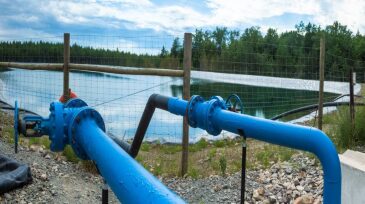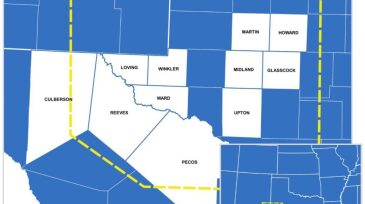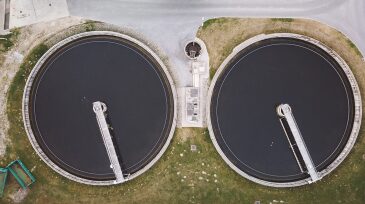Water management
This paper describes a decision-support system that integrates field data, system specifications, and simulation tools to quantify system performance, forecast operational challenges, and evaluate the effect of system modifications in water management.
The authors of this paper aim to design, optimize, and evaluate a scalable and energy-efficient plasma-driven advanced-oxidative-process system for produced-water remediation, emphasizing regulatory compliance for safe discharge or reuse.
If there is a key takeaway as 2025 comes to a close, it is the new level of diligence and depth in water-management planning, along with a growing recognition of the need to invest in more complex methods and sophisticated technologies.
-
Sourcing water, flowback water services threatened as D&Cs decline.
-
The room for error and cost overruns just got a lot smaller with the escalating need to make operations more efficient and leaner with fewer resources and investors continuing to prioritize ESG alongside profitability.
-
Cutbacks in oil and gas production and drilling and completions will result in a decrease in produced water and will also lead to a reduction in water infrastructure investment.
-
The fact sheet, in conjunction with other IPIECA water management guidance, is intended as a guide to explore opportunities to reuse produced water.
-
GWPC releases its third produced water report. Texas leads all states in produced water volume.
-
NGL Energy Partners announces acreage dedication for Delaware Basin water transport and disposal
-
Produced water is an inevitable byproduct of oil and gas production. The use of online oil-in-water monitors plays an important role in the management of produced water.
-
Layne Water Midstream has amended its agreement with the Texas General Land Office to gain exclusive right for reuse and disposal of produced water in the Delaware Basin.
-
The Trump administration has finalized a rule to strip away environmental protections for streams, wetlands, and groundwater, handing a victory to farmers, fossil fuel producers, and real estate developers who said Obama-era rules had shackled them with onerous and unnecessary burdens.
-
While traditional operating expenses in produced water management are heavily scrutinized, a full picture of profitability in water management is gained only after comprehensively examining the unique aspects of the overall business model.













